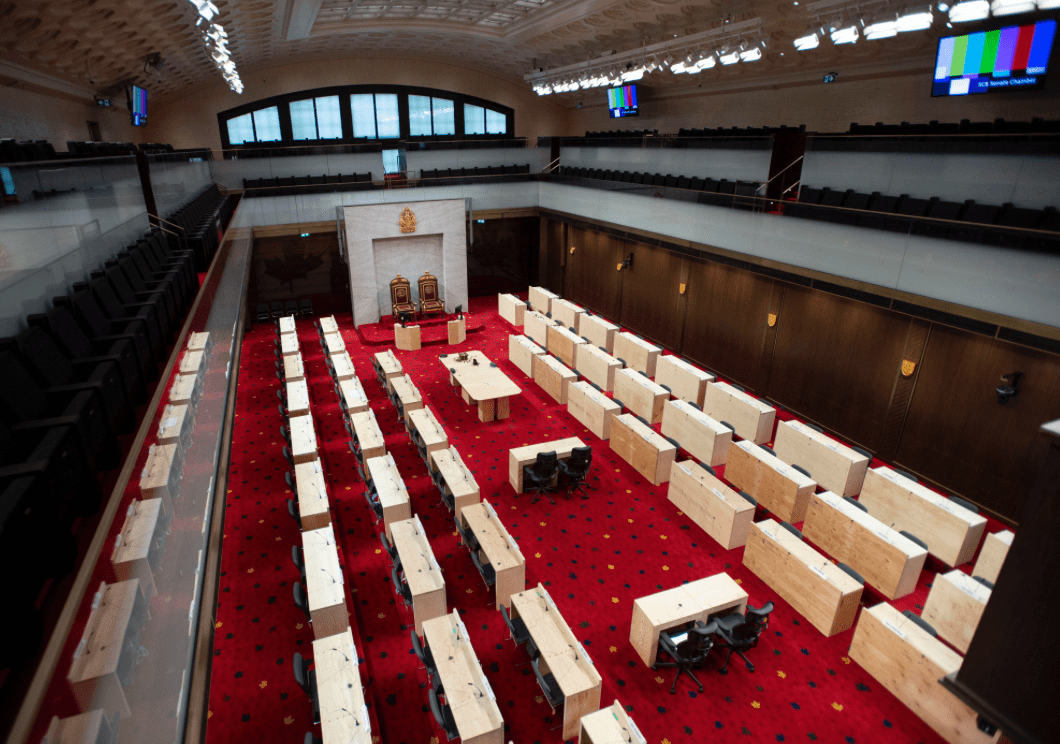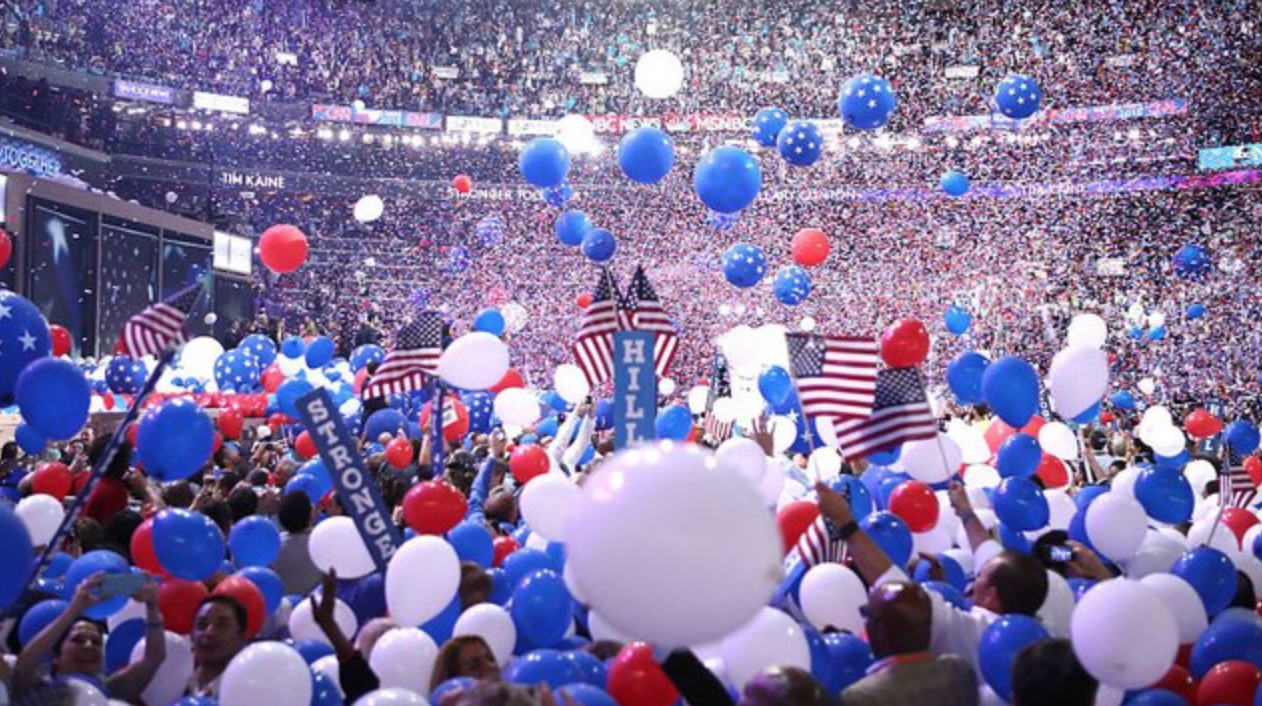With the Senate due to return this week to their new Chamber, lamentable new carpet and all, we will soon get our first glimpse of televised proceedings in the Upper House. The topic of cameras in the Chamber has long been debated, but there has been a sense of inevitability about it, and prior to the renovations, it was decided that because the infrastructure in the Centre Block had been maxed out, it was simply too expensive to put cameras in at the time. This was after the earlier debate about where to air the Senate's proceedings was settled by the advent of more reliable webcasts the creation of a CPAC-2 in order to air the Senate Chamber's proceedings opposite the House of Commons' wasn't palatable to the vast majority of people at the time.
How television will change the Chamber is also a question that is being contemplated, particularly given the current membership dynamics. After all, it's a pretty easy argument to make that televising debates started to debase the Commons particularly Question Period. It became an exercise in creating clips for the six o'clock news, which has slid further into infamy as it now serves to gather clips for social media. Will the Senate succumb to such temptations as well? Very possibly. There are certain senators who already use the existing audio clips to partisan advantage, and this will become much more performative once there are images to go along with it. With many others, it will be a way to share clips of the good work they're doing, which is its own sort of performativity.
More concerning, however, is the debate bubbling up among senators about possibly changing the way in which debates are structured in order to make them "TV-friendly." A few of the newer senators have complained that it can be difficult for some Canadians to follow a debate because most business is not grouped like it is in the House of Commons. Because the full Order Paper is read out every day in the Senate, and any Senator can speak to any item on it, it means that we tend to see speeches on a particular bill one day, and a response may not come for several days later. Now, the rules in the Senate tend to be such that there are immediate questions and comments that follow a speech, so you get some actual debate right then and there, but a substantive reply rarely follows any particular speech.
Generally, this has not been a problem in the Senate because of how the Chamber operates. Traditionally, there aren't a lot of speeches at Second Reading, or even Third Reading, because the whole institution is geared toward the work of its committees. That's one of the reasons why the Chamber itself usually only meets three days per week, while its committees meet four just like Commons committees. With less focus on Second and Third Reading debates, there is less need for the full Chamber to meet as often, as compared to how the House of Commons works. Up until recently, we would see the sponsor of a bill give their Second Reading speech to explain why it should pass to committee on the broad principles of the bill, and days later, the designated critic of the bill would give a rebuttal, and would take the extra time between debates in order to respond to the points made by the proponent before the bill would be sent to committee. Likewise, Third Reading has tended to be final arguments once any amendments have been accepted at Report Stage. This isn't to say that the opposition can't line up a number of interventions at second reading to protest a bill they don't like it's a legitimate tactic. But that isn't the way things are headed, with unnecessary Second Reading speeches that are more about putting individual positions on the record.
Contrast this to the House of Commons, where days of debate are devoted to Second and Third Reading debate, for little actual outcome. It's about using canned speeches to fill time rather than to have a substantive debate on any points, which is part of the danger of "structuring" Senate debates for the sake of a (miniscule) television audience that it would only encourage canned speeches that don't address the points raised by the previous speaker. (Note that there is a larger problem in Canada with our romance of Second Reading debates, as contrasted to Westminster where they last a single afternoon, and the Speaker divides the speaking times based on the number of MPs who want to speak to it, which tends to work out to ten minutes apiece with allowance for questions from the floor, unlike Canada's twenty-minute speeches whose sole purpose is to fill time).
But while Senators start debating if they want to impose that structure for a hypothetical television audience, they need to see the bigger picture that the only person that this move would serve is the Leader of the Government in the Senate err, "government representative," Senator Peter Harder, who has been crying out for some kind of regularity to the debates. It goes hand-in-hand with his desire to create a business committee, whose job it would be to time allocate all debates in the Senate. Of course, it would simply be fobbing off the responsibility for said time allocation to a committee instead of Harder, given that he is apparently allergic to doing his job of negotiating with the other caucuses around timelines of bills, not to mention that neither he nor the Independent Senators Group want to do any horse-trading to get things done, because "that's partisan."
Imposing a "structure" for the sake of television is time allocation by stealth. It gives power to Harder to get the government's agenda through without his having to do the work of negotiating for it, or more importantly, without having to call a vote on it. It has perverse side-effects that are antithetical to the way the Chamber has operated for 150 years in order to fill time allocated for those debates "for television's sake," it simply creates an incentive for canned speeches. And more to the point, it takes away power from individual senators to speak to any item on the Order Paper they want, like they have currently. Deciding that they want these "structured debates" smacks more of vanity for some senators than it does respecting the role of the Chamber. This proposal should be dead on arrival before it eats up more time that the Senate doesn't have before Parliament rises for an election.








